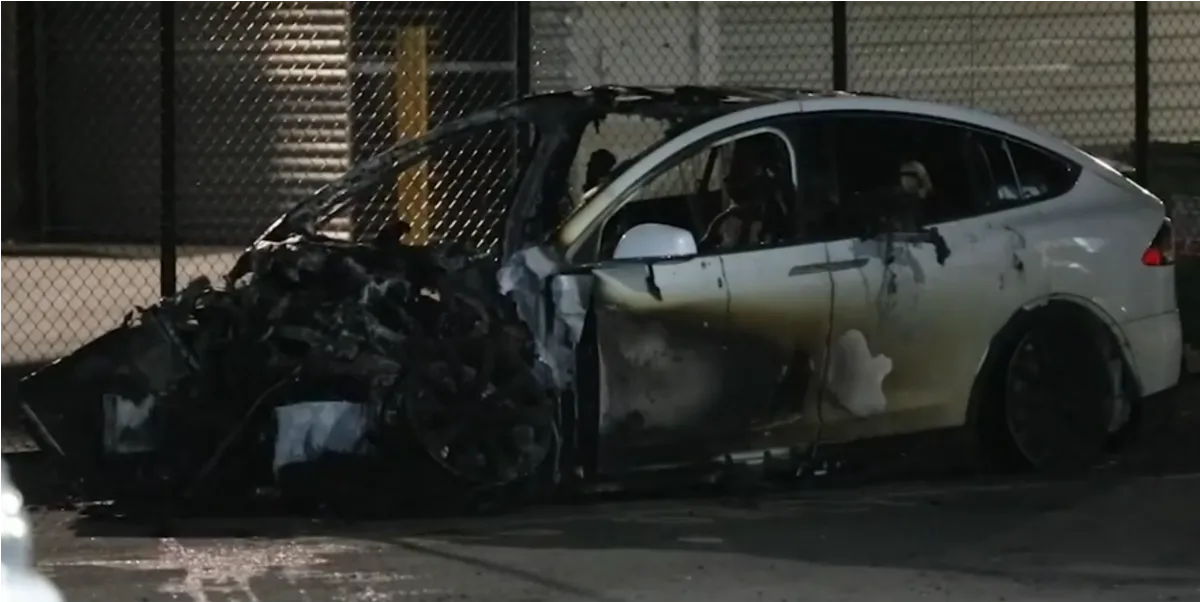EV Fires
Craig Shearer - 3rd April 2023
Bronwyn, being the troll that she is, asked if I’d be writing about EV fires this week, after seeing news articles, here and here posted about a fire on the Auckland Harbour Bridge, which involved an EV.
For those that don’t know, I’m a keen EV proponent, and have owned an EV for the last five and a half years - first with a Nissan LEAF, then a Tesla Model 3 for the past two and a bit years.
The recent EV fire was a bit of a strange one. Most of the publicity about EVs catching fire involves the battery catching alight and being very difficult to extinguish, but this one appeared to be caused by a tire that caught fire. From various sources online, it appears that a Tesla Model X, driven by a woman, who was allegedly intoxicated, had one of its front wheels catch fire while in the tunnel which approaches the bridge. She continued to drive it across the bridge, where burning rubber was strewn over the road!

Such are the dangers of driving while intoxicated, and ignoring what must have started as a small fire which progressed into something major. Somehow I think the insurance company might have a few things to say about the claim, if it does turn out that the driver was intoxicated!
Anyway, EVs do catch fire, but so do Internal Combustion Engine (ICE) cars.
Stuff wrote a fairly good follow-up article asking whether we should be worried about car fires, pointing out that ICE vehicles also catch fire.
EVs and other modern portable electronic devices all use Lithium Ion batteries of one sort or another. With the proliferation of these devices, it’s likely that fires will be more common. These batteries are used in smartphones, laptop computers and tablets, and electric scooters and bikes. And hybrid vehicles have both a battery pack, and a fuel tank - elevating the risk?
Interestingly, the likelihood of serious difficult-to-put-out fires depend on the battery chemistry. With some chemistries, once the battery catches fire, it can enter a state of “thermal runaway” where damage to the battery causes short-circuits which further increase heat and fire. Sometimes, thousands of litres of water are needed to extinguish such a fire.
Luckily, many EVs now being manufactured, and particularly those recently making their way onto New Zealand roads, have Lithium Iron Phosphate (LFP) batteries, which are less prone to thermal runaway issues. And, as I’ve written before, EVs are engineered in such as way as to protect the battery from puncture during a collision, minimising the risk of short-circuits that would trigger a fire.
One recent American study, run by an insurance company, compared the rates of car fires for different fuel types. Per 100,000 car sales, only 25 EVs caught fire, compared to 1529 ICE vehicles, and an astounding 3,474 hybrid vehicles!
Given that EVs tend to be newer cars, it’s certainly likely that their low rates of fire might well be affected by their age. Certainly, older cars that haven’t been well maintained might well be at much higher risk of catching fire. Still, the rates are pretty low, and I don’t lose sleep at night worrying about my EV and two e-Bikes in the garage.
In reality, these stories tend to be used by the anti-EV brigade, who latch on to any negative story about EVs, to promote FUD.
For me, I’m happy to report my EV is about clock over the 30,000km mark, having given me two years of trouble-free running, with little maintenance, and a total “fuel” bill of around $1100, not to mention the satisfaction of emitting a lot less climate-change-inducing CO2.